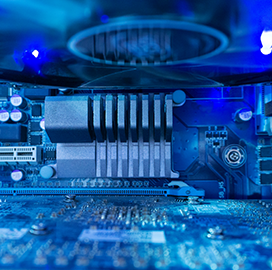Sandia National Laboratories is working with NASA, the National Nuclear Security Administration and Voyager Space Holdings subsidiary NanoRacks on a new rapid testing approach for supercomputers and other national security space technologies.
The project will use the International Space Station as a testing ground, hosting payloads carrying different technologies such as a high-performance computer installed on the NanoRacks External Platform, Sandia said Monday.
The team began testing Sandia’s payload, LEONIDAS, which carries Advanced Micro Devices‘ Versal microchip designed for national security satellites. The demonstration is being done at the External Platform on the Japanese external module of ISS.
Instead of spending ten years or more on traditional component testing, the new space-based approach shortens the research time to 12 to 18 months while the technology is still relevant.
Using the new process, Sandia is planning to advance other innovations under its Laboratory Directed Research and Development projects. After LEONIDAS, a payload called ASTRID will be launched to test four separate technologies: a vanadium dioxide plant for regulating satellite temperature; an experimental electromagnetic pulse protection device; an integrity box for securing satellite data; and radiation-hardened neural networks.





